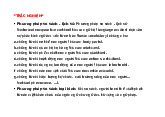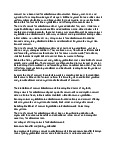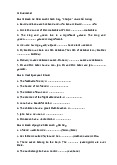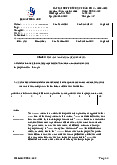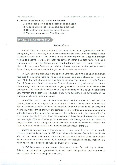

Preview text:
Tea and the Industrial Revolution
A Cambridge professor says that a change in drinking habits was the reason for the Industrial
Revolution in Britain. Anjana Abuja reports
A Alan Macfarlane, professor of anthropological science at King's College, Cambridge has, like
other historians, spent decades wrestling with the enigma of La the Industrial Revolution. Why
did this particular Big Bang - the world-changing birth of industry-happen in Britain? And why did
it strike at the end of the 18th century?
B Macfarlane compares the puzzle to a combination lock. There are about 20 different factors
and all of them need to be present before the revolution can happen,' he says. For industry to
take off, there needs to be the technology and power to drive factories, large urban populations
to provide cheap labour, easy transport to move goods around, an affluent middle- class willing
to buy mass-produced objects, a market- driven economy and a political system that allows this
to happen. While this was the case for England, other nations, such as Japan, the Netherlands
and France also met some of these criteria but were not industrialising. All these factors must
have been necessary. But not sufficient to cause the revolution, says Macfarlane. 'After all,
Holland had everything except coal while China also had many of these factors. Most historians
are convinced there are one or two missing factors that you need to open the lock.
C The missing factors, he proposes, are to be found in almost even kitchen cupboard. Tea and
beer, two of the nation's favourite drinks, fuelled the revolution. The antiseptic properties of
tannin, the active ingredient in tea, and of hops in beer-plus the fact that both are made with
boiled water allowed urban communities to flourish at close quarters without succumbing to
water-borne diseases such as dysentery. The theory sounds eccentric but once he starts to
explain the detective work that went into his deduction, the scepticism gives way to wary
admiration. Macfarlane's case has been strengthened by support from notable quarters - Roy
Porter, the distinguished medical historian, recently wrote a favourable appraisal of his research.
D Macfarlane had wondered for a long time how the Industrial Revolution came about.
Historians had alighted on one interesting factor around the mid-18th century that required
explanation. Between about 1650 and 1740. The population in Britain was static. But then there
was a burst in population growth. Macfarlane says: The infant mortality rate halved in the space
of 20 years, and this happened in both rural areas and cities, and across all classes. People
suggested four possible causes. Was there a sudden change in the viruses and bacteria
around? Unlikely. Was there a revolution in medical science? But this was a century before
Lister's revolution*. Was there a change in environmental conditions? There were improvements
in agriculture that wiped out malaria, but these were small gains. Sanitation did not become
widespread until the 19th century. The only option left is food. But the height and weight
statistics show a decline. So the food must have got worse. Efforts to explain this sudden
reduction in child deaths appeared to draw a blank.
● anthropological: nhân học n
● wrestling with: hiểu or tìm câu trả lời v ● enigma: bí ẩn n
● puzzle: bí ẩn or câu đố n ● take off: bắt đầu v ● drive: chạy v
● sufficient: đầy đủ adj ● coal: than n ● convinced: tin rằng v ● proposes: đề nghị v
● ingredient: thành phần n
● flourish: phát triển mạnh adj ● succumbing: đưa vào n ● eccentric: kì lạ adj ● deduction: kết luận n ● scepticism: ngờ vực n
● strengthened: thúc đẩy adj ● appraisal: ý kiến n ● wondered: tò mò adj
● wiped out: phá hủy, dời v ● Sanitation: vệ sinh n ● statistics: thống kê n.
